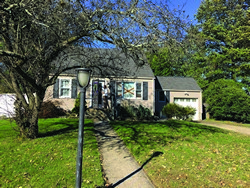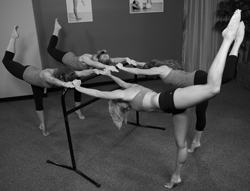Monmouth University is unique in the sense that you have the opportunity to live on-campus or off-campus.
A common trend is that many freshmen live on-campus to get a feel for college and to meet people; while students progress in their college years, many find themselves moving off-campus with friends you have met.
Many juniors and seniors have experienced both sides of living. Similar to most things in life, there are pros and cons to each. Something that many students notice is that their peers spend two years off-campus and two years on.
Living on-campus as a freshman is a great decision that new students make.
Although Elmwood Hall is not the most glorious building, students find themselves making an abundance of friends throughout the building.
From living next door, to bonding over the obscene heat of September, it could be easy to make new friends.
By just keeping your door open you can meet so many people which ultimately contributes to your college experience. It sounds cliche, but it works.
Living on-campus comes with many pros such as the dining hall.
Living on-campus means you are required to have a meal plan. Having a meal plan is something that students that have moved off-campus probably took for granted up. It has such a variety of options and it is convenient for on-campus students.
Walking into the dining hall or student center to grab food in between classes is the most convenient factor of on-campus living.
Another convenience of on-campus living is walking to your classes. At Monmouth University, parking causes off-campus students problems because it seems as if there is never enough spots.
When living on-campus, all you have to do is leave 10-15 minutes before class and you’ll still be on time, not having to worry about finding a parking spot.
Everything you need on-campus is within walking distance, what a great perk to have.
Brielle Kough, a junior psychology student said that “my favorite part of living on-campus was how convenient everything was.
My classes, the dining hall, the gym, and the library were all in walking distance of my room.”
Although living on-campus is extremely convenient, you still have to share a room with others, which is not a lifestyle that everyone looks forward to.
Living off-campus provides a lot more responsibility. Paying rent, keeping up with bills, and cooking are only a few of the obstacles that this change provides.
Driving to class is one of the most drastic changes because although many students that are off-campus live close by, you need to make sure you leave enough time to battle the parking lots.
It is definitely an adjustment especially for early classes having to wake up much earlier than usual.
Cooking is also a big difference between on-campus and off-campus housing.
Now instead of walking right to the dining hall, you are forced to go to the grocery store and cook for yourself.
For some people, this might be better than the dining hall, but for others, it serves as a challenge.
Abbie Urbanak, a junior marine biology student stated that “living off-campus can make you realize how much responsibility living on your own is.”
Urbanak admitted, “I never realized how much my mom helped me with until I moved into my house this year.”
Both living off-campus and on-campus come with unique challenges and perks.
Once you find what’s fitting for you, college can continue to be a great experience.
PHOTO TAKEN by Cassandra Capozzi-Smith



